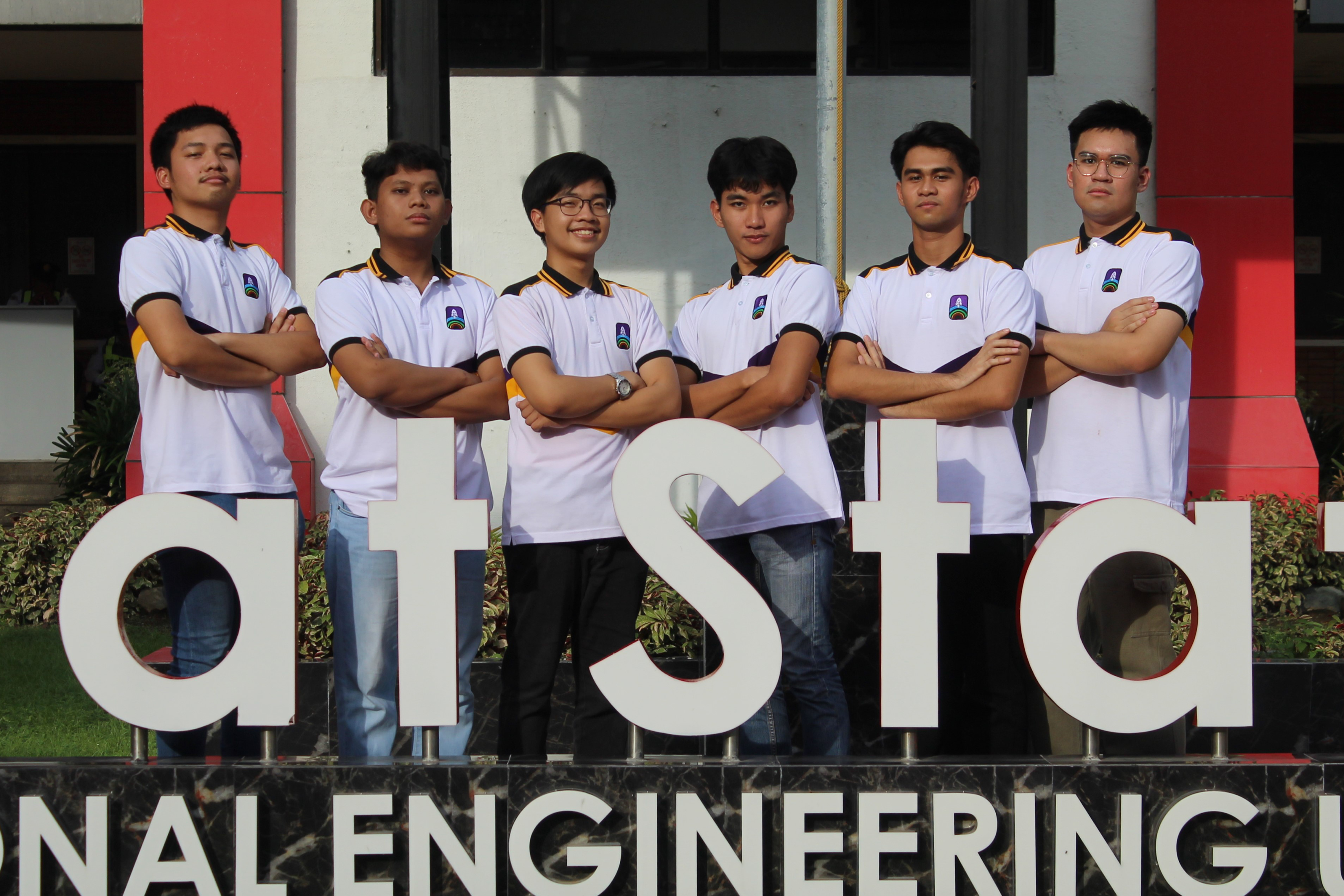The Philippine Space Agency (PhilSA) is pleased to announce that team Inflection Point of the Batangas State University (BatStateU) will be the first-ever Philippine team to join Kibo Robot Programming Challenge (Kibo-RPC).
Hosted by the Japan Aerospace Exploration Agency (JAXA) in cooperation with the National Aeronautics and Space Administration (NASA), the Kibo-RPC is an international programming challenge for the youth to gain scientific, technical, and mathematical skills for manipulating space robots. Student teams will code a program for Astrobee, NASA’s free-floating robot, within the Japanese “Kibo” module aboard the International Space Station (ISS).
Team Inflection Point is composed of six first-year aerospace engineering students from BatStateU: Andrew Cabile, Howell Dela Cruz, Benedict Lontok, Ahron Martinez, Amer Panganiban, and John Royeth Samson. Their entry scored 260.2 points during simulation conducted by PhilSA staff using JAXA’s simulator, acquiring the highest average score among all the PH entries.

“Upon seeing this competition, we immediately joined without knowing much, thinking that we will obtain knowledge and experience along the way. We weren’t expecting that our curiosity and desire to learn would enable us to dive deep through this competition and dedicate ourselves to obtaining the best results, leading to the win that none of us would see coming a few months back. Expect us to do what we can in the final round as we dare mighty things,” said the team.
Following the preliminary round, each winning team from the participating countries and regions will advance to the in-orbit final round, which will take place aboard the ISS later this year.
PhilSA led and organized the local call for proposals for this year’s Kibo-RPC Philippines. 29 team applications were received nationwide from 2 April to 27 May 2024 and seven (7) teams successfully submitted their APK source codes. These teams include students from Batangas State University, FEATI University, Mapúa University, Polytechnic University of the Philippines – Santa Rosa Campus, Lyceum of Alabang, Polytechnic University of the Philippines – Santa Rosa Campus, and Rizal Technological University.
The simulation was conducted simultaneously for all seven (7) teams and the JAXA Simulator was able to run 10 simulations per program/team, from which individual and average scores were collected. Insights on each team’s mission performance, time record, and scores were also generated during the preliminary round.
This also marks the first year of the Philippines joining the KIBO-RPC.
About the Kibo-ABC program
The Kibo-ABC program or Asian Beneficial Collaboration through Kibo Utilization was established by the Space Frontier Working Group (SFWG) of the Asia-Pacific Regional Space Agency Forum (APRSAF) to promote the utilization and share the value of the Japanese Experiment Module “Kibo,” enhance the capacity of participating organizations, and foster collaborative projects between Japan and Kibo-ABC member countries.
The Kibo-RPC, through its member organizations, is one of the activities under the Kibo-ABC program that aims to expand the use of the Kibo module on ISS and develop the youth’s understanding of space environments.
For more information on the challenge, visit: https://jaxa.krpc.jp/




